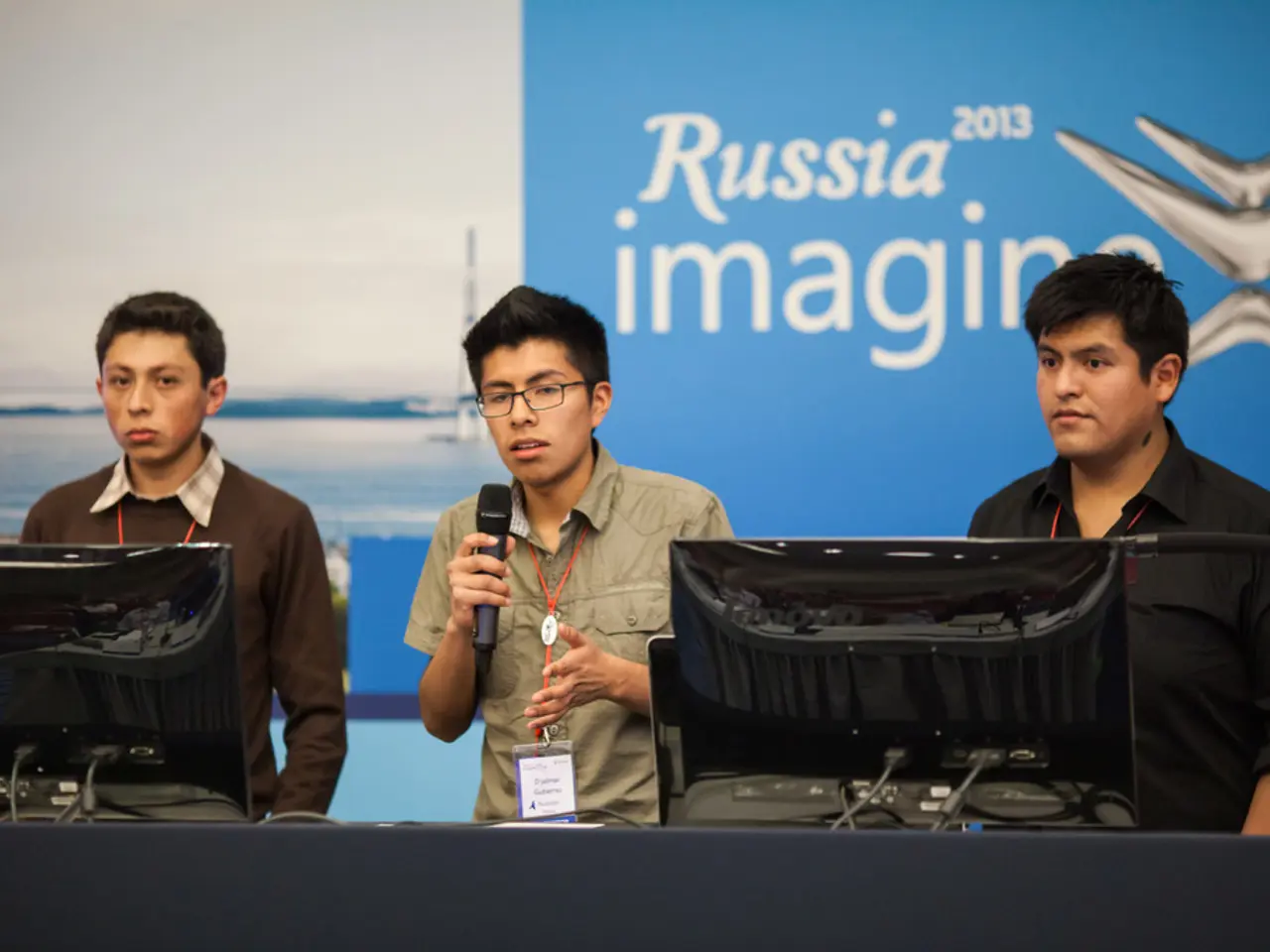Solution Proposed, Yet Ukraine Remains Crucial
The international community is currently grappling with the prospect of potential compromises regarding Ukrainian territories, as tensions between Ukraine and Russia continue to simmer. The German Foreign Minister has recently stated that "Violence should not shift borders," suggesting a move away from black-and-white thinking on the issue [1].
At the heart of the matter is Ukraine's firm rejection of any surrender of sovereign land, particularly the regions of Donbas and Donetsk, citing constitutional prohibitions. Ukrainian President Zelenskyy insists that Ukraine must be the ultimate decision-maker about its territories [2]. Russia, on the other hand, demands inclusion in any security guarantee discussions and continues to focus on Donbas as a region of interest [1].
President Donald Trump has been actively pushing for a bilateral meeting between Putin and Zelenskyy as a step towards peace talks. Trump has expressed optimism about both leaders coming to peace but emphasized the need for both sides to show flexibility [1][3]. However, Moscow has not confirmed readiness for a direct summit with Zelenskyy, demanding to be involved in security discussions.
The compromise being negotiated involves Ukraine temporarily accepting Russian occupation of certain areas in return for Russia stopping the fighting. This proposal, which has been circulating for some time, is considered one of the better solutions, despite being painful, by some experts [3]. The legality of the borders would not be shifted, but the factual recognition of territories is suggested [1].
However, the international community awaits clarity on whether such meetings will occur and what compromises might be viable amid ongoing conflict tension. The EU and Ukraine express concern about the meetings, while NATO Secretary General Mark Rutte suggests that "factual" cessions might be unavoidable [1][3]. Polls in Ukraine show that the willingness to accept such a solution is growing among the population [2].
The division among the West regarding the issue of Ukraine and Russia remains apparent. There seems to be a recognition of urgency, but substantial disagreement remains on territorial compromises or the process for negotiations [1][3]. Commentary from expert analysts reflects a cautious appraisal of the potential outcomes of the Trump-Putin meeting, noting the complexity of achieving breakthroughs given entrenched positions on both sides [4].
In conclusion, the current international stance on potential compromises regarding Ukrainian territories remains cautious and divided. The future of Ukraine's territories hangs in the balance, as the international community watches with bated breath for developments in the ongoing negotiations between Ukraine, Russia, and the United States.
Read also:
- Court petitions to reverse established decision on same-sex marriage legalization
- Commemoration of 200 Days of American Resurgence Unveiled
- Minister Bärbel Bas expresses doubts about her tenure as a minister following a recent interview during the summer.
- A Tale of Two RussiansGate Notable Figures: Focus on Mike Davis







